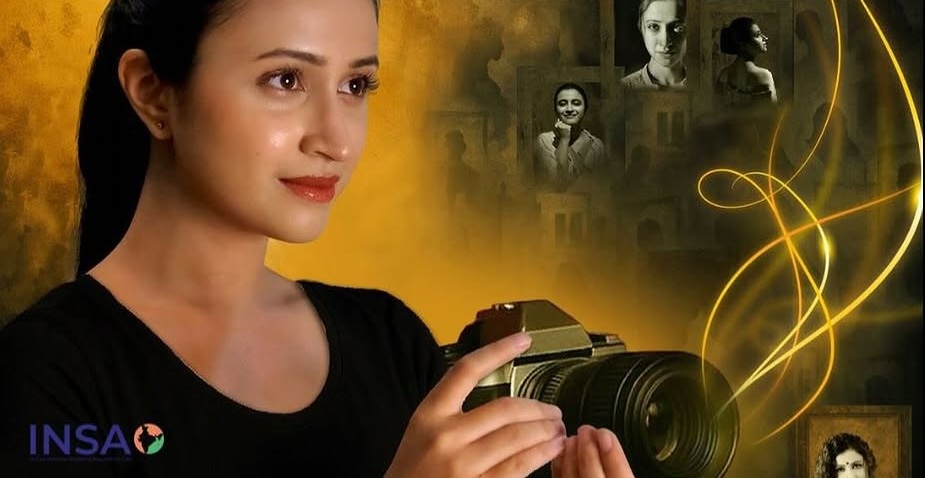Look at the window. What do you see? The young Kanika, growing up in Mumbai, sees a slice of life bordered by the window-frame; so when her uncle gives her a Polaroid camera, she instantly knows what to do. I could happily have spent the whole of this one-woman show listening to the opening monologue, where the now-grown Kanika excitedly explains her passion for photography and for the “magic of light and shadow”. But soon we embark on an artistic retrospective – as Kanika describes her favourite photos, and transports us to the many and varied places she has taken them.
Kanika finds beauty where others wouldn’t: in an Ethiopian toilet-cleaner, or a young girl from the poorest part of an Indian town. Each of these encounters is accopanied by a vignette from the photographic subject’s life, all vividly evoked by solo performer Ritika Shrotri. Shrotri’s character work is excellent, with small changes in posture and demeanour making each of her creations fully-fleshed and unique; her portrayals of children are especially endearing. And while Niranjan Pedanekar’s script is often sweet and charming, some of the scenes pose difficult questions too – about the cost artistry can extract from others, or whether a lie can ever reveal a deeper truth.
We never see any actual photographs, but we hear they are composed in striking black-and-white – and that visual image is matched by the elegant staging. A large white curtain is the only backdrop, closed or opened to add variety to the scenes and occasionally used to explore the theme of light and dark through some evocative shadow-play. Brief interludes of physical theatre and dance add to the tenor of a spry and free-spirited show.
In the distant background stands Kanika’s mother, a loving but not always supportive presence. Partly she worries like any parent would – pushing the benefits of a stable career in IT – but we sense there’s also a deeper fear in play. The truth, when it’s revealed, is not at all what we expected, and it would land a touch more naturally if there’d been one or two hints to prepare us. But it’s a clever and effective plot twist which transforms our understanding of Kanika’s motivations, while neatly underlining the essential themes of the play.
There’s a loose discussion of conservatism and tradition running through the script as well: we see it first within Kanika’s own family in India, but more where she travels to Muslim-majority Pakistan. The conversation that follows, where a young woman shyly tells her boyfriend that she’s been photographed without her veil, is a timely reminder not to make assumptions about people we don’t understand. Overall The Light Catcher is a masterpiece of solo theatre, as quietly impactful and elegantly composed as the photographs it describes. Every life must feature some shadow, it tells us… but it’s the pattern of shadow that defines the light.


Comments